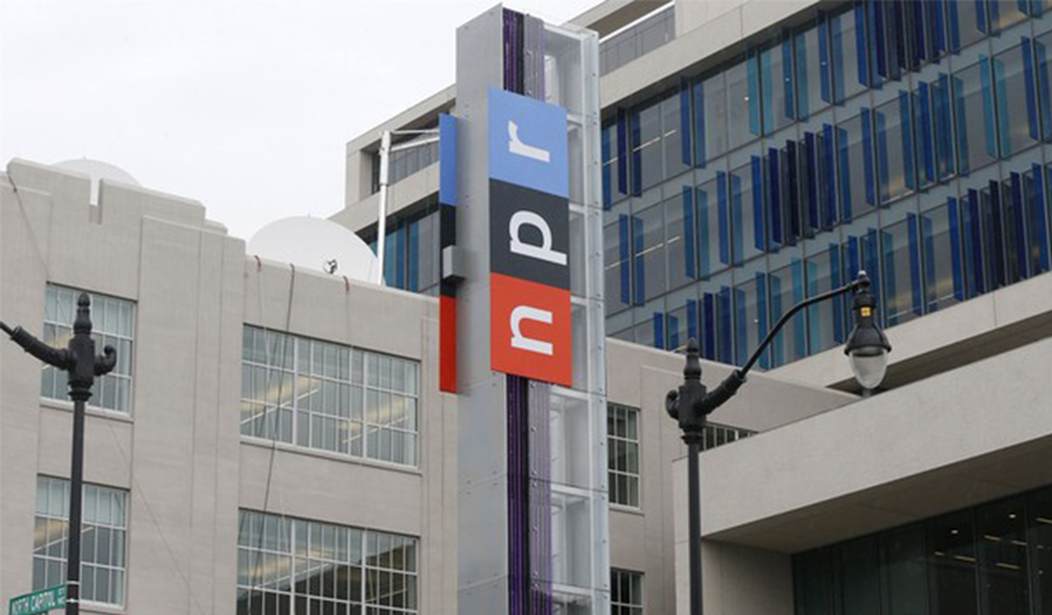This past weekend, Margaret Brennan was heard repeating a worn-out lobbying effort regarding the need for taxpayer dollars going to public broadcasters. Speaking with Rand Paul, Brennan uncorked the talking point that sounded like it may have been written for her by Steve Inskeep. “Public broadcasters provide critical emergency warnings for the government. If there is a storm, for example. Are you concerned that these kinds of cuts will endanger people?”
With federal financial support for public broadcasters pinned to the ax-throwing target this week, the wailing will be constant. NPR has been digging its talons in on the federal teat for months with an audacious claim made to retain its share of public largesse, but its primary argument may have been submerged with the recent Texas flooding event. This is an amazing rebuke they never anticipated.
With the emergence of Donald Trump 2.0, there has been all manner of federal spending cuts proposed. One of the targets that has received some of the most vocal resistance in the press has been the suggested defunding of public broadcasting. The prospect of pulling the taxpayer support for the rather blatantly partisan outlets of National Public Radio and the Public Broadcasting Service has been something resurrected on a regular basis, only to ebb back and have the spending continue.
This week, after years (generations?) of attempts, we could see this come to a conclusion. President Trump has issued a July 18 deadline for a rescission vote on the spending for this to be decided, and after already clearing the House, the Senate has until Friday to cast its votes. During all of the lead-up to this vote, we have seen a number of congressional hearings, been pelted with endless coverage and editorials about the vital nature of these outlets, and of late, all manner of promised doom should they lose their federal backing.
This has prompted a curious argument to emerge over the past six months or so: Public broadcasters save lives. If your head just twitched like a dog hearing a harmonica, that is for sound reason. This argument has come out of desperation. For years, during any defunding discussion, the press and the Democrats have relied on a tried and true emotional tug at the heartstrings of the public. “They want to kill Big Bird!” “Republicans are trying to evict Elmo!”
Upon hearing this, as expected, parents and anyone who grew up watching "Sesame Street" had an instant recoiling in mind at the prospect. And largely it has worked. But as the outmoded media complex has lost traction with the public, and digital outlets and social media now serve as an antidote to the propaganda machines, the truth has taken hold. "Sesame Street" has not been under the PBS umbrella for a decade, as it was owned by AT&T-Warner to show on HBO-Max, and was recently acquired by Netflix. (The show is still licensed to run on PBS, just not exclusively.)

So, with the Muppet gambit off the table, they have had to resort to a new angle. So arrived the claim that these entities provided much-needed emergency service to those people residing in the outpost locations of the country. Now, logic dictates that there are very few locations where other broadcast affiliates and/or internet access are not present and ONLY NPR/PBS options exist, yet this boast has been made so extensively it carries less appeal now than a tote bag offer during Pledge Week.
RELATED: Elmo Goes Haywire With Disgusting Posts on X, but the Mockery in the Replies Is a Laugh Riot
And now this claim is also becoming neutered. When the July 4 flash floods struck central Texas, there was heightened interest in the storm advisories and flood warnings going out to residents. As the press desired to pin responsibility on President Trump and his budget cuts to the weather services, the truth emerged that those advanced notifications had, in fact, been made in a timely fashion. With the scrutiny came this detail: The local NPR station was the last outlet to make these warnings known.
At Newsbusters, Craig Bannister supplied this nugget concerning the outlet Texas Public Radio (TPR) and how it was seen to be far more than lax in its detailing of these advisories and warnings.
At least three flood alerts were issued between Thursday’s 11:03 a.m. (TPR’s lobbying plea) and 8:05 p.m., when Texas Public Radio posted its first Facebook announcement of the flash flood warning.
At 1:14 a.m. Friday morning, a Flash Flood Warning reporting a “considerable” flood danger triggered Wireless Emergency Alerts (WEAs) and National Oceanic Atmospheric Administration (NOAA) Weather Radio notifications, automatically interrupting regularly scheduled weather broadcasts.
Then, at 4:03 a.m. on Friday, July 4, the National Weather Service’s Flash Flood Warning was upgraded to a Flash Flood Emergency. Neither the emergency alert nor the earlier warning was reported on TPR’s Facebook or Instagram pages. Because Texas Public Radio has been inactive on X.com (formerly, Twitter) since 2023, followers were not warned of the floods via this popular social media platform. When the Emergency Alert was issued, TPR stations had just begun airing PBS’s national “Morning Edition” program, which runs from 4:00 a.m. to 9:00 a.m.
So much for this vaunted claim of providing the taxpaying public with life-saving and timely broadcasts. But it gets worse.
While TPR was not putting out these alerts, it was active in getting other notices out to the public. As noted above, the station posted a lobbying plea to listeners regarding its funding being threatened, at 11:00 am on Thursday, July 3.
That came 11 hours after the initial flash flood watch that was put out by the National Weather Service. Three additional weather alerts were made before TPR got around to posting the first of its notifications, just after 8:00 pm that Thursday. Then, as several local broadcast affiliates were reporting on the flood emergency, there is no evidence to show that the TPR station made any kind of breaks or programming shifts to cover the floods.
The first indications of that NPR affiliate, KTXI, posting flooding news was a 1:30 pm report on July 4 concerning some of the damage, and the first indication of the flood warnings and resulting deaths was not made until after 8:00 pm that evening – 19 hours following the flood warning being issued for the area.
This should be all that is needed to expose the vacancy of this claim being made in defense of the public broadcasters. As they try to insist that they need to remain supported with taxpayer dollars in order to save lives, all that has been shown is that when emergencies were looming and lifesaving alerts were needed, the outlet in Texas was focused on one other emergency – losing its funding.
Editor’s Note: Every single day, here at RedState, we will stand up and FIGHT, FIGHT, FIGHT against the radical left and deliver the conservative reporting our readers deserve.
Help us continue to tell the truth about the Trump administration and its successes. Join RedState VIP and use promo code FIGHT to get 60% off your membership.














Join the conversation as a VIP Member